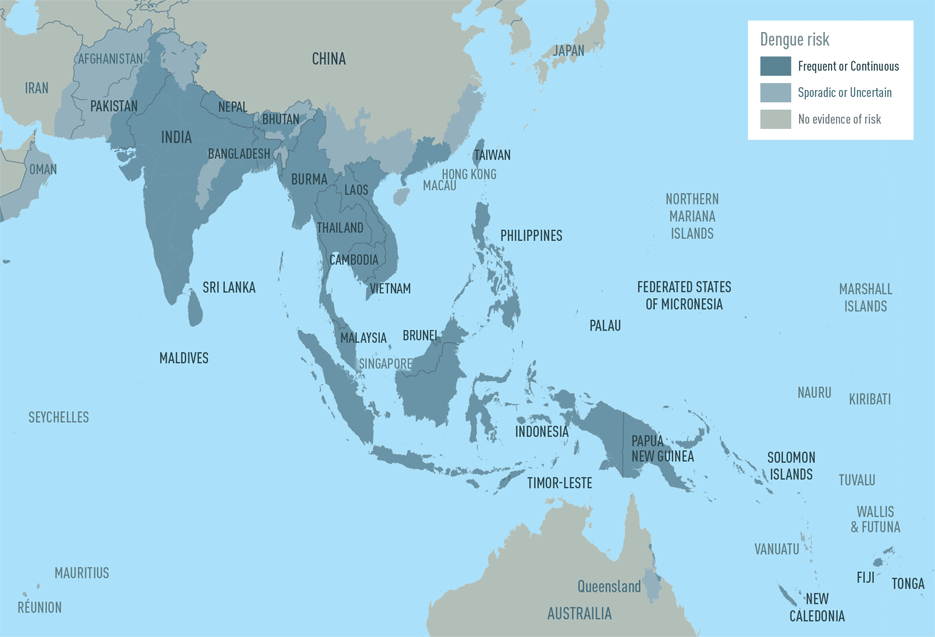
Dengue in Asia and the Pacific Islands
Warning - Level 3, Avoid Nonessential Travel
Alert - Level 2, Practice Enhanced Precautions
Watch - Level 1, Practice Usual Precautions
Key points
- Dengue is a risk in many parts of Asia and the Pacific Islands.
- Some countries are reporting increased numbers of cases of the disease.
- Travelers to Asia and the Pacific Islands can protect themselves by preventing mosquito bites.
What is dengue?
Dengue is a disease caused by a virus spread through mosquito bites. The disease can take up to 2 weeks to develop with illness generally lasting less than a week.
Health effects from dengue include fever, headache, nausea, vomiting, rash, muscle and joint pain, and minor bleeding.
Dengue can become severe within a few hours. Severe dengue is a medical emergency, usually requiring hospitalization.
In severe cases, health effects can include hemorrhage (uncontrolled bleeding), shock (seriously low blood pressure), organ failure, and death.
What is the current situation?
Dengue is an ongoing risk in many parts of Asia and the Pacific Islands (map). Travelers to areas of risk should protect themselves by preventing mosquito bites. In addition, the countries listed below are reporting higher-than-usual numbers of dengue cases, and travelers visiting these countries may be at increased risk:
- Bangladesh
- Cook Islands
- Federated States of Micronesia (Yap State)
- French Polynesia (Tahiti, Bora Bora, Moorea, Nuku Hiva, Raiatea, Huahnine, Rangiroa)
- Guam
- Marshall Islands (Aur, Ebeye, Majuro, Maloelap, Utrik)
- Nepal
- Pakistan
- Palau
- Philippines
- Singapore
- Sri Lanka
What can travelers do to protect themselves?
Because dengue is spread by mosquito bites, all travelers to risk areas should prevent mosquito bites by using an EPA-registered insect repellent, wearing long-sleeved shirts and long pants when outdoors, and sleeping in an air-conditioned room or room with window screens or under an insecticide-treated bed net.
Learn more about dengue (how to prevent it and what to do if you think you are infected) at CDC’s dengue page for travelers.
Traveler Information
Clinician Information
- Dengue in CDC’s Yellow Book
- Dengue information for health care professionals
This notice was originally posted August 27, 2019.



































No hay comentarios:
Publicar un comentario